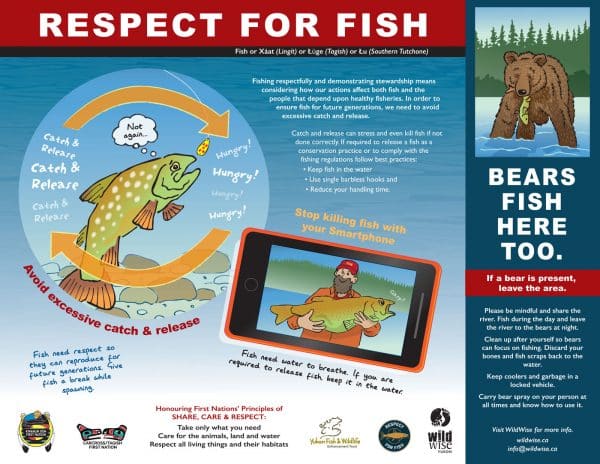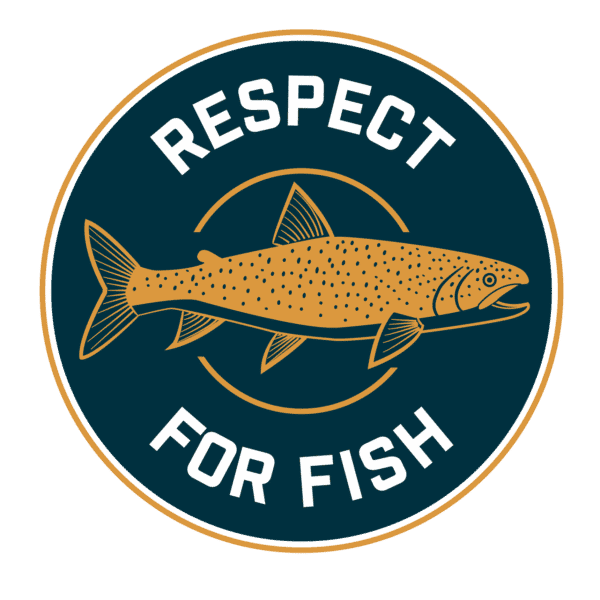Yukoners love to fish with the 2nd highest participation rate in Canada (Source: DFO, 2015). For many, sport or recreational fishing is a way of life and forms part of their identity. A few outfitters, lodges and guides depend on income derived from providing sport fishing experiences to visitors from all over the world. Licensed anglers will spend hours on the water trying to catch a fish to eat, a fish to release, or just enjoy being outdoors. The concept of releasing fish for sport is highly divisive and polarizing and has been a deeply rooted social conflict in Yukon for decades. Many recreational anglers feel that releasing fish is the greatest sign of conservation and a true sign of stewardship. The fish will swim away to be caught another day, spawn and maintain the balance for future generations. Another passionate viewpoint often shared through social media and other forums is that releasing fish is “playing with food”, unethical, and causes unnecessary harm and stress.
It is estimated that 80% of fish caught in Yukon waters are released, either voluntarily because the angler practices catch and release or due to regulations where the fish did not meet specific size requirements. Some fish are caught repeatedly, and some will die after being mishandled. Couple with increased fishing pressures, effects caused by climate change and habitat have on fish populations.


